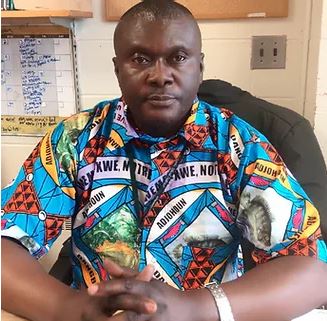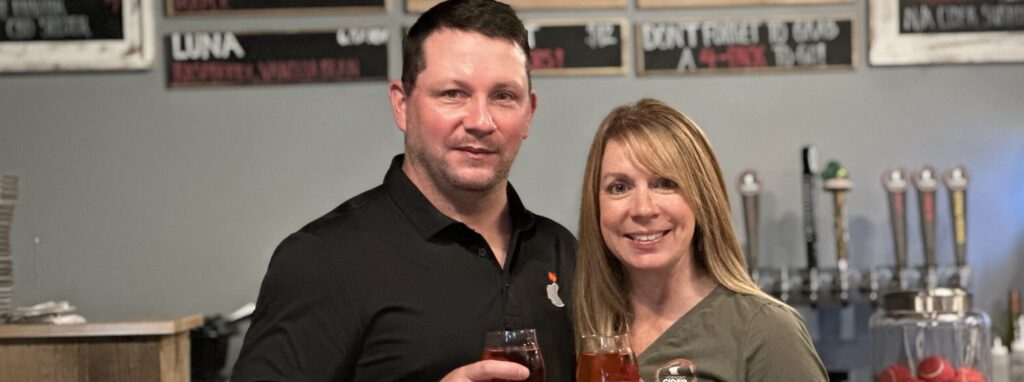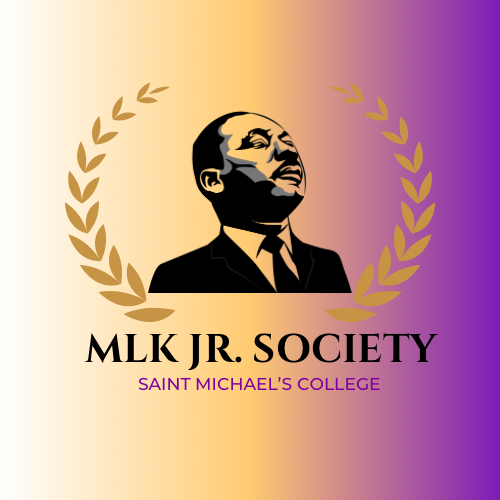
Kyendamina (Cleophace) Mukeba’ 12,
“At times there are things that are not really planned and not your choice – you have to do it,” says Kyendamina (Cleophace) Mukeba ’12, a Saint Michael’s College political science graduate who recently was appointed to serve as a community representative on a new Racial Equity Task Force for Vermont established by Vermont Governor Phil Scott.
Dictates of conscience already drive Mukeba’s considerable activism to address urgent human needs and justice, whether in his adopted U.S. home or his original homeland, the Democratic Republic of the Congo where he fled because of war in 1996, spending an extended and uncertain time in refugee status in Zambia, Tanzania, Mozambique and Malawi before being resettled with his family in the U.S. in 2005.
On May 31, Gov. Scott established the Racial Equity Task Force for Vermont under direction of the state’s new Executive Director of Racial Equity, Xusana Davis. From among a very competitive field of applicants, Mukeba was selected as a community representative to this historical task force, which has a three-fold charge, according to Mukeba’s friend and fellow activist from the Saint Michael’s political science faculty, Professor Trish Siplon.
The new Task Force has been directed “to examine structures of support for racially diverse populations in light of the disparities of health outcomes highlighted by COVID-19; to review current state and federal law on hate speech and freedom of speech and make recommendations on changes; and to study and present options for encouraging Vermonters from marginalized and underreported racial and ethnic groups to run for public office.”
 Beyond this new responsibility, Mukeba is also executive director of the Vermont Ibutwa Initiative, which supports survivors of sexual violence in the Democratic Republic of Congo, and which has a strong relationship with Saint Michael’s College on several levels: Its Board of Directors and/or Project Management Committee include Laurie Gagne, formerly (through end of last academic year) the director of the Edmundite Center for Peace and Justice at Saint Michael’s (who traveled as president of the group with Mukeba to Congo in 2015); Siplon, Katherine Kirby, associate professor of philosophy and global studies; and Laurence Clerfeuille, who through last year was on the French faculty and invited Mukeba to speak on campus or online to her classes several times, as have the other faculty
Beyond this new responsibility, Mukeba is also executive director of the Vermont Ibutwa Initiative, which supports survivors of sexual violence in the Democratic Republic of Congo, and which has a strong relationship with Saint Michael’s College on several levels: Its Board of Directors and/or Project Management Committee include Laurie Gagne, formerly (through end of last academic year) the director of the Edmundite Center for Peace and Justice at Saint Michael’s (who traveled as president of the group with Mukeba to Congo in 2015); Siplon, Katherine Kirby, associate professor of philosophy and global studies; and Laurence Clerfeuille, who through last year was on the French faculty and invited Mukeba to speak on campus or online to her classes several times, as have the other faculty
Mukeba and local author Jared Grange have also recently begun another new initiative — the Vermont Center for Cultural Diversity (VCCD) — which has as its mission “to create an ongoing program of events, exhibits, and various learning experiences – open to the general public – that celebrate and inform about the cultures of the New Americans who have settled in our midst.”

Professor Patricia Siplon
Mukeba says it was Siplon who forwarded to him the application information to serve on the Task Force. “I felt I can show them about our experiences as New Americans here, since the fact of race here in Vermont is that, when you’re talking about Black residents, while everybody is Black, we as New Americans are experiencing it differently in some ways, even while sharing the same situation as all Blacks in Vermont in many ways too — we as New Americans also are talking about our names, our accents — so this is different, and I felt we need a voice, we need to speak about these issues; so that was part of what motivated me to apply,” he said.
“What I want the government to understand is that the demographic is really changing, and they are wasting their time saying that they want people to come to Vermont just for the $10,000 incentive in the present policy – few if any Black people can do that and live here and maybe farm and stay – so I would tell them: ‘You want people from diverse backgrounds coming to Vermont, but you have your own population here already that are immigrants and yet you don’t try to keep them here – some are leaving because the cost of living is so high to them when you get $12 an hour and trying to support a family of six or seven.”
Among immigrant families that he knows in Vermont, Mukeba said, “we have those who came over from Africa with credentials but they can’t use their credentials — for example, as a teacher, since it’s so long a complicated process in Vermont to teach … or else maybe potential employers they don’t believe we have the right accent to be clearly understood for a job. These are issues I want to raise – how, in education, there are disparities people don’t always see. If our New American students want to apply to area colleges, for instance, maybe those colleges don’t have special things to attract them. So I would like to put more pressure on the issues of education and employment in my work with the Task Force.”
He said in mid-July that first Task Force meeting was for members to introduce themselves to one another by Zoom meeting and the group plans to meet twice a week to finish its first charge by an August 15 deadline if possible under the challenging present circumstances.
Mukeba said his other recent new project, Vermont Center for Cultural Diversity, “has been in my mind in various forms for a very long time – four or five years – I want to get different perspectives of how we can start advising the younger ones in our New American population. Sometimes we older community members think that they have more opportunity than we had maybe, since they can master the language — but they are also more vulnerable as there also is the risk of drugs or jail, so when they come over, we wanted somebody to come in and do an interview, local men and women to guide and advise them.”

Professor Katherine Kirby
The idea, he said “is a center to bring people from different backgrounds to enrich our experience of refugees or immigrants.” Getting out the stories of refugees that might help community understanding or help guide new arrivals, whether in a book, or orally through the center, would be an immediate goal, and he has a writer-friend with whom he is working on advancing the project currently.
Recently, he said, he has had similar conversations with justice activist, Professor Katie Kirby of the St. Mike’s philosophy faculty of the need for such education for New Americans in Winooski and greater Burlington.
With all of his projects in recent months, Mukeba said, he thinks more now of recent widely publicized incidents of racial injustice in the U.S. with police, and what role he and his groups might play. After the George Floyd killing, Mukeba said, his young son sent him the video of the horrible incident, “and I got upset right away. I said, this is not how one human being can treat another human being.’” Mukeba said that while he long had heard about Black men having “the talk” with their sons about racism and interacting with police, “ I used to think it would not come to my own sons here, but after watching that, I said to him, ‘we have to talk.’” His sons are now 10 and 14 years old, he said. “I said I don’t want to see that in Vermont; and if we don’t talk about these issues, I fear we might have a similar situation. We have children coming and they are Americans, but if we don’t teach them, they might have similar situations. They need to understand the history and the issues here.”
This might involve a conversation about “simple things, just talk — they need to understand that if police stop you, just answer the questions, don’t go to reach for an ID, because you could get shot.” With the last group of young people that came from Congo, for example, he said to himself and others in his community, “this is a time we need to be serious about education,’ — so my first goal is to think about how we can educate them … they need to learn, to understand history and how people operate, what is acceptable and what is not. I want them to be more educated, because your understanding of the situation can save somebody’s life.”

This graphic shows on the left the region in the Congo where Cleophace Mukeba is originally from — his state is South Kivu in the east-central part of the nation on this map. On right is the flag of Congo.
Noting that “Ibutwa” is a word from his native culture that means “renaissance” and speaks to his aspirations in the organization he founded with that name to help women who are victims of sexual violence in his homeland, Mukeba said that also with his new Center that he proposes for educating New American youth, “what I’m talking about is a renaissance or a rebirth of youthful education,” so all his work is connected in a sense.
Mukeba, 53, lives in Burlington, and his children attend public schools there. He went on from Saint Michael’s to earn an Environmental and Policy Law Degree from Vermont Law School, and he is married with four children. His said his higher education journey in the U.S. began with CCV classes once he had first settled into Winooski many years ago, followed by a transfer to Champlain College majoring in environmental policy — but he decided from some conversations with faculty that Saint Michael’s had more of what he was looking for, as far as having a socially aware element to environmental policy studies. The science requirements at Saint Michael’s challenged him at first, he said, so he switched majors to political science, with environmental studies instead of environmental science as his concentration. “What kept me connected through all that was that we had good professors there at Saint Michael’s who wanted to know more about the Congo and wanted to be doing something about it and bringing students into it too,” he said.

For all press inquiries contact Elizabeth Murray, Associate Director of Communications at Saint Michael's College.






